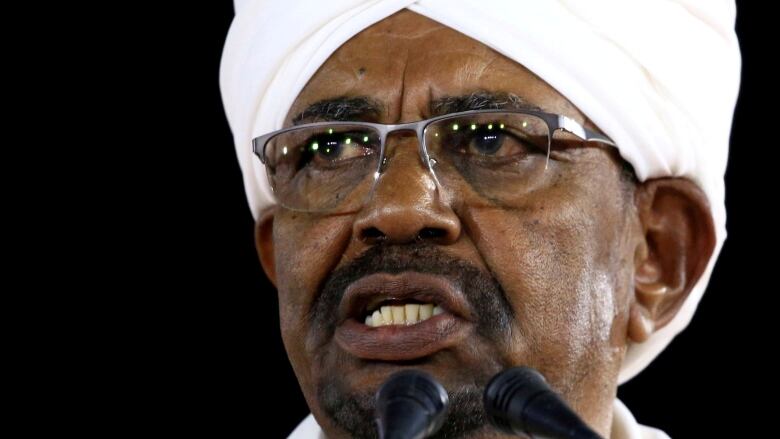Sudan's president bans protests amid growing calls that he step down
Emergency decrees give sweeping new powers to police amid unrest

Sudan's President Omar al-Bashir banned unlicensed public gatherings and gave sweeping new powers to police in a series of emergency decrees on Monday in order to counter the most sustained anti-government street unrest of his 30-year rule.
The decrees came amid fresh protests in various parts of thecapital Khartoum, where security forces used tear gas againsthundreds of students demonstrating inside the campus of thecountry's oldest women's university.
Prosecutors were given the authority to strip people such aslawmakers and military officials of immunity, and set upspecial emergency courts. Publishing news that "harms the stateor citizens, or calls for undermining the constitutional system"was also banned on punishment of up to 10 years in jail.
Death toll may be higher than reported
Bashir also announced a ban on trading or hoarding fuelproducts and subsidized goods, and jail terms for peopletravelling abroad carrying more than $3,000 in currency or 150grams of gold.
Security forces have responded with tear gas, and sometimeslive fire. At least 33 people have died, according to officialstatistics, including three security force members.Protesters believe the true death toll is higher.
In the latest protests on Monday, witnesses said securityforces fired tear gas athundreds of female students who had demonstrated inside their Ahfad university campus, one ofthe country's most prestigious academic institutions.
They said some students burned tires outside the campusgate.
"We had a protest stand demanding freedom and to end injustice," said a 21-year-old student who declined to beidentified. There were no immediate reports of casualties. Apolice spokesman was not immediately available for a comment.
State of emergency
Witnesses also reported a separate protest in downtownKhartoum, where hundreds of demonstrators blocked a main road.

Bashir declared a one-year state of emergency on Friday anddissolved the central and state governments. He called on parliament to postpone constitutional amendments that would havelet him seek another term in a 2020 presidential election,although he stopped short of saying he would not run.
He had since appointed a caretaker central government andnew governors for the country's 18 states, all officers in thearmed forces or security services.
"Security measures will not resolve the economic crisis," hesaid. "The situation in Sudan requires more openness and notmore political and economic restrictions."
Bashir is wanted by the International Criminal Court for crimes allegedly committed in Darfur region in westernSudan. Sudan denies any atrocities and says it does notrecognize the ICC.
On Monday, Bashir's National Congress Party elected AhmedHaroun, a former governor of North Kordofan state, as deputyhead of the party for political and organizational affairs.Haroun is also wanted by the ICC on Darfur war crimes charges.












_(720p).jpg)


 OFFICIAL HD MUSIC VIDEO.jpg)
.jpg)



























































































